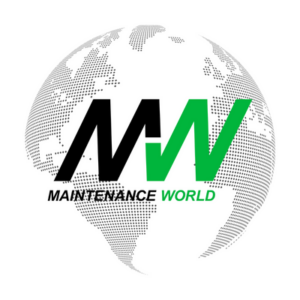Making These 8 Simple Changes in Your CMMS Will Give You Surprising Results
Lindsey Walker, Marketing Manager for NEXGEN
Posted 05/30/2023
Everything has changed with the passage of time, except for your CMMS. Since the day it was deployed, it has been performing every single task at peak efficiency – whether it is pumping out PM routines, tracking inventory, creating work orders or generating accurate reports. Something that makes your life so easy and effortless surely deserves a little something extra. So what is it that you can do to get out of this monotonous routine? Switching to a CMMS was a great move you made to stay updated with advanced technology but you can give your CMMS system that much-needed productivity boost by incorporating a new set of intuitive tools. Simply making these changes to your CMMS will help you save tremendous time and effort day after day.
What Is CMMS?
CMMS stands for Computerized Maintenance Management System. It is a software application that helps organizations manage and optimize their maintenance operations. CMMS software usually includes several functions and modules to aid in tasks such as planning and tracking maintenance activities, managing work orders, managing inventory and assets, generating reports, and analyzing maintenance data.
A computerized Maintenance Management System can be integrated with EAM solutions to provide a comprehensive and unified approach to maintenance and asset management. The integration between the CMMS and the EAM allows for seamless data exchange and collaboration throughout the plant life cycle.
Let’s see the changes that will help you save tremendous time and effort day after day:
1. Capitalizing on Cloud-based CMMS for Maintenance Optimization
Who would want to restrict the capabilities of a fully loaded CMMS solution that is designed for the web? A cloud-based solution comes with so many features that can be leveraged to streamline maintenance management processes in 60 seconds. Here are 7 ways a cloud-based CMMS will simplify your maintenance procedures and save you time and money:
- Simplified billing with zero upfront expenses
- Server maintenance is not needed
- Instant access to mission-critical data on any device
- The costs of hardware, installation and maintenance are eliminated
- Facilitates instant diagnosis of issues and brings down the troubleshooting time
- Software updates are included and automated to facilitate uninterrupted operations
- 24X7 monitoring that keeps you on top of equipment performance and inventory management
Enjoy all of the above-mentioned benefits and more by updating your existing CMMS to an easy-to-set-up cloud-based solution.
2. Making the Most of Mobile CMMS for Streamlined Operations
Mobile technology has completely modified the way businesses operate, making them agile, accessible and efficient. Mobile apps now make it much easier for maintenance technicians to instantly access the CMMS even when they are on the field. A mobile CMMS brings mission-critical maintenance data to your fingertips so there is zero wastage of time in completing day-to-day maintenance tasks. It empowers your maintenance crew to generate, manage, monitor and close work orders on any device, check inventory, and remotely access equipment information without needing any expensive hand-held hardware. With a mobile CMMS solution in place, your technicians will never remain tied to an on-premise computer system and still have access to all the work and information they need handy in real-time.
3. Taking Advantage of IoT for Improved Maintenance Management
Why invest in a CMMS that needs you to manually enter each and every piece of information? Creating preventive maintenance schedules, spot inspections and tracking spare parts are all important maintenance tasks that determine operational efficiency and business success but they are also time-consuming. What if there was an easy way to access all this information on a single unified framework where everything is comprehensively displayed to make perfect sense? By integrating “The Internet of Things” with your CMMS, you can analyze vital data and accordingly improvise operations to keep small maintenance issues from becoming major failures. Your possibilities become endless when the IOT is applied to maintenance management. Below are a few of the many things that can be made easy by embracing IOT:
- Sensors embedded in your vital equipment identify abnormal conditions in real-time to facilitate faster troubleshooting
- Work orders are automatically triggered when the operating limit is nearing expiry
- Sensors accurately predict failures when operations tend to go astray
- Mapping user behavior facilitates instant identification of recurring maintenance issues which helps in improving the uptime
- Checks are routed on the basis of work orders and according to the movement of the maintenance crew
- Internet-connected equipment and machinery make software upgrades seamless and quick
IOT helps facility managers gain valuable insights into underperforming assets and employees. Using the data, managers can rework their maintenance strategies and auto-generate notifications for emergency repairs. Your business success is tied to the ability of your computerized maintenance management system to intelligently tie with advanced tools for creating a competitive advantage. If you have a CMMS, integrate it with the IOT for increased productivity and reduced downtime.
4. Custom data entry forms:
Most computerized maintenance management systems (CMMS) have pre-established data entry forms to record maintenance tasks. However, these generic forms may not always collect all the relevant information needed for your company’s specific maintenance processes. By customizing the data entry forms in your CMMS to meet the unique needs of your organization, you can collect more accurate and complete data. This can lead to surprising results, such as greater data accuracy, better decisions and greater efficiency of maintenance processes.
5. Automated work order generation:
Many CMMS allow the manual generation of work orders, in which maintenance tasks are created and assigned manually. However, this can take a long time and cause errors. Configuring automated rules to generate work orders based on triggers, such as meter readings, equipment execution times, or predefined schedules, can streamline the maintenance process and ensure the timely creation of work orders. This can lead to surprising results, such as reduced downtime, better compliance with preventive maintenance regulations and increased productivity.
6. Advanced reporting and analysis:
Many CMMS systems include basic reporting and analysis functions. However, the use of advanced reporting and analysis functions can provide valuable information for making data-based decisions. By using advanced reporting and analysis tools in your CMMS, you can identify patterns, trends and areas for improvement in your maintenance processes. This can lead to surprising results, such as optimized maintenance strategies, longer equipment life, and better overall maintenance performance.
7. Integration of supplier management:
Many maintenance tasks require external suppliers or contractors to perform repairs or provide services. By integrating supplier management functions with your CMMS, you can streamline the supplier management process, including monitoring supplier performance, contract management, and order automation. This can lead to surprising results, such as better communication with suppliers, streamlining procurement processes and greater accountability for supplier performance, which translates into better maintenance results and a reduction in downtime.
8. Predictive maintenance functions:
Traditional maintenance approaches are often reactive, meaning that repairs are carried out after an equipment failure has occurred. However, when you integrate predictive maintenance functions into your CMMS, you can use data analysis and machine learning algorithms to predict equipment failures before they occur. This allows for proactive maintenance planning, reducing downtime and minimizing the risk of costly unscheduled repairs. Implementing predictive maintenance in your CMMS can produce surprising results, such as increased equipment uptime, lower maintenance costs, and greater overall equipment reliability. By implementing these eight changes to your CMMS, you can achieve surprising results in your maintenance processes. These changes to your CMMS can help you improve data accuracy, streamline maintenance processes, enable real-time updates and collaboration, proactively identify maintenance needs, and optimize maintenance strategies, ultimately resulting in better plant performance, greater operational efficiency and reduced maintenance costs.

Lindsey Walker
Lindsey Walker is the marketing manager for NEXGEN, a Sacramento-based industry leader in designing advanced computerized maintenance management systems and asset management software tools for utilities, facilities, public works, manufacturing, and fleet industries. In her free time, Lindsey enjoys traveling and reading, which allows her to gain new perspectives and inspiration for her work. She is committed to creating content that connects well with her readers, enhancing their digital experiences.
Related Articles

Developing CMMS Implementation Templates

CMMS Software - Selecting the Right CMMS

Why Might your Business Need a CMMS?




